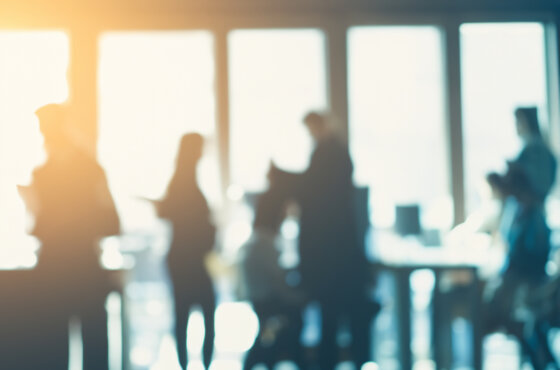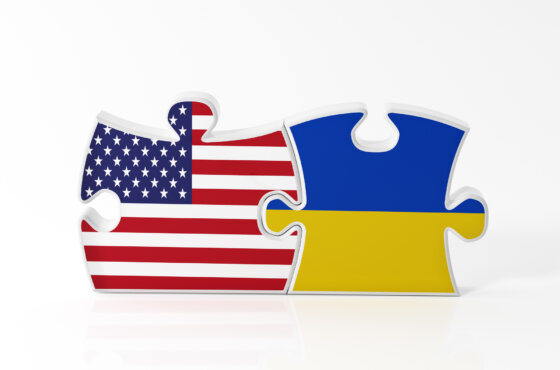It's open again: will Russians and Americans fight for Cuba
The “Forum” visited Cuba to find out what the locals expect from the restoration of relations with the United States, how it will affect friendship with Russia and whether capital from the countries of the former Soviet Union will rush to the island.
Havana falls asleep late, the city is still poorly lit. In the most unexpected places - on the parapets, sometimes along the road, and more often on the ground and the benches - until late, almost silently, whole families sit: she has a sleeping child in her arms, he holds a smartphone in his outstretched hand. Across the road is a parallel reality: a long chatty line to a pay phone. Both those and others went to the “communication session”: after 11 evenings, both phone calls and the Internet become cheaper.

A communication session with the mainland - a video call to American relatives. Photo by Hannah Teller
The Internet has appeared in Cuba quite recently, and now the locals have maps with Wi-Fi access points. The pleasure is slow and not cheap: the recharge card is about one dollar per half hour. Money, by local standards, considerable. Sometimes you have to wait for the connection for about 20-30 minutes, there are not enough cards, second-hand dealers are buying them up - the 15-16 boys are years old, scurrying between adults and foreigners. Old women and young people, young mothers and fathers with children arrange video calls with relatives who left Cuba many years ago. Most settled in Miami, some 400 kilometers from Havana. Now they are American citizens, and since December, the US has officially allowed them to visit relatives in Cuba.
Charter flights to Cuba from Miami existed “for their own” for a long time - it was only necessary to prove the relationship and the need for a visit “for family reasons”. The trip cost in 250-300 dollars. The rest of the American tourists, who, despite the bans, rushed to Cuba, had to fly through third countries: Canada, Mexico, Caymans, Panama and, sometimes, even London. It cost so much pleasure in 1000 dollars for a ticket booked in advance.
Direct flights from Miami and New York have already appeared. Washington is next in line. Flights to Havana from neighboring Baltimore will be launched by the end of September.
Get to miami
64-year-old Emilia says:
My daughter lives in Miami, this year I went to her four times. To be honest, I don’t think that the opening of the embassy will drastically and radically change something. This was important 20 years ago when a daughter and her husband sailed to Miami in a motorboat and sought asylum. Then I thought that I would never see them again, agents of the Seguridid came to me almost every day, interrogated and even selected the things of the daughter she left in her apartment. But now the connection is established, the children give me the money, I don’t even explain where they came from. I don’t have much to spend on them here - I buy many products using ration cards, some on the market. When you come to America, your eyes, of course, run away from the choice in the supermarket, in Cuba there is no such thing. But the most necessary is, I am not spoiled.
Mikel, 43 of the Year, admits that he tried to escape to Miami three times, and every time he was caught by the US Coast Guard. “They sent me back, they put me in a temporary camp here, agents of the“ secret police ”come to me now. I am a hairdresser, they appear in my salon under the guise of clients, so at work I do not discuss politics - you never know who you cut, ”the man says.
And he asks a question to the journalist of the Forum:
- You do live under capitalism, but you grew up in the Soviet Union, and I want to know: how do you like to live better - under socialism or capitalism?
- Under capitalism.
- Thank you for your answer, it gives me additional inspiration for the fourth attempt, I am not joking. I have hands, legs, a profession, I love to work, not yet old. If I'm lucky, I'll still get to Miami. This is my dream.
"Zhiguli" is better than a cow
In Havana, you can now find all the necessary minimum: vegetables, meat, cereals, seafood and even diapers, creams, sweets and cigars. They are issued on cards in state stores - he noticed the tail of the queue and bought a pound of lobster for three dollars. At the other end of the city, “powdered” milk can be “thrown away” - with the present, farmer milk, the country is still under tension. It is difficult for a Cuban to explain what sour cream and yogurt are, most have not seen or even tried them in their lives.
The clothes are the simplest, without frills and pretensions to fashion trends, as in the post-Soviet space in the early nineties: T-shirts with the inscriptions “Patayya” and “Kip Wright”, identical “varenki”, knitted dresses with rhinestones, T-shirts trimmed with cheap lace, identical tights with a rosette pattern. Only foreigners who have lost their luggage still dress at Benetton and Paul & Shark - prices are three times higher than on the mainland.
Foreigners - Russians and Americans, French and Canadians - are still the main source of income for Cubans. For tourists, the special currency is a cook, its rate against the dollar 1: 0,86. They are calculated in restaurants, hotels, apartment owners, taxi drivers. Prices for local and foreigners sometimes differ tenfold; the cost of dinner at a medium-sized institution in the central part of Old Havana is sometimes the same as at London’s Michelin restaurants. In the legendary “Bodeguita”, which Hemingway loved so much, tourists are watered with warm “mojito” - tours to the places of the writer's military glory are still honored. Bars with inexpensive food and “honest” cocktails are removed from the rival competitors by the inscriptions “Hemingway has never been here”, “No Wi-Fi, talk to each other”.
Caring bartenders call taxis for tipsy regulars, while simultaneously emptying their pockets of unnecessary things: wallets, mobile phones, passports. Instead, they put a piece of paper in your pocket with an address and the text: documents and money are here, take them and pay. These same bartenders call taxis - instead of the legendary American cars from the fifties, “Chinese” and “Koreans”, in honor of the French, drive around Havana (the cost of a Peugeot in Cuba sometimes reaches half a million cookies). A wrecked Fiat from 1960 can be found for five to seven thousand dollars.
Cubans joke: the car is better than a cow, it will pay for gasoline, milk, electricity bills, completely broken can be sold for parts. But for the killing of a cow, you can “shake off” the term, and the death of the animal is made more rigorous than the death of a person - without fail with witnesses of natural death.
The most profitable business - auto parts for "fret", "Zhiguli" and "Muscovites". They are sold to the state and brought in containers under the guise of things for personal use. Even with the high cost of transportation by sea, it is worth it: the price is seven to ten times higher than in Russia. One of the largest suppliers is the shop of the Russian-speaking Cuban Fabian Zakharov in Miami.
Cars on the island of liberty are very expensive. “Kopek” will cost ten thousand dollars, a kolymag of the type of Polish “Fiat” of the fifties - five thousand, “Pontiac” or “Buick” - from ten thousand, prices for “Peugeot” - from one hundred thousand to half a million dollars. Previously, the car could only be bought from the state, now from hand to hand. They are being “reflashed”, new engines are being installed, in order to save gasoline engines are being converted to diesel engines prohibited here. Gasoline costs about one and a half euros per liter - the price for most Cubans is inaccessible.
With a Russian accent
Cuba speaks Russian with an accent, but definitely better than English. Since Soviet times, there are not only “Zhiguli”, but also concrete high-rises, the structure of the army and security services. The Russian military left Freedom Island in 2001, after nearly forty years of intense presence.
In 2009, the Russians wrote off ninety percent of the debt worth 29 billion dollars. The Cuban national debt was the largest among the countries of the former “social bloc” - Afghanistan and Iraq combined, it was significantly less. No one has canceled geopolitics, and the memory of the Caribbean crisis is still alive: it is more important for Russia to have a friend in the immediate vicinity of the United States than to beat out the last money from Cuba.
America did not stand aside, and in December 2013 announced that relations with Cuba were warming. First allowed travel to certain categories of citizens of both countries. One of the first American officials to visit Cuba was David Cohen, head of the foreign assets control office (OFAC). Many overlooked his trip, waiting for the opening of the embassies of both countries and the early lifting of the embargo.
And this was a very important detail, explains Oleg Grobstein, an expert at OG consulting in Chicago. According to him, the Office for the Control of Foreign Assets is a secret organization, and even its addresses cannot be found. OFAC is subordinate to the Financial Intelligence and Counter Terrorism Authority (this is part of the Ministry of Finance) and administers the sanctions programs. “There is an assumption that the head of the department, David Cohen, went to Cuba to check how things are going with the state settlement accounts of Cuba and Russia.
Of particular interest was the 29 billions of state debt written off by Russia. I think the countries have agreed on a mutually beneficial agreement on these accounts, otherwise the opening of embassies and the restoration of relations would not take place, ”the expert suggests.
There are quite a lot of Russians in Cuba - these are children of the former military, businessmen and restaurateurs, workers in the tourist industry.
42-year-old Mikhail was born in Vladivostok into a military family; his parents brought him to Cuba. “I studied here at university, got married, and had my children here. My parents left, although my father worked here for a long time as a military consultant, even after his retirement. Now they live in Russia, and I stayed in Cuba. I have a Cuban residence permit, I don’t have citizenship - it is only given at birth or for special services to the country, like Che Guevara. I work as an individual guide, “my man” in Cuba,” he says.
Michael helped the top ten businessmen from the hotel business in Cuba. According to him, only a large network business survives on the Island. 51% of any hotel belongs to the state, 49% - to an individual or a group of investors, profit is distributed accordingly. Management and maintenance staff must be 80% Cubans.
With the purchase of land and real estate is still tight. Although Cubans were finally allowed to buy, and not to exchange apartments for a surcharge, as they did in Soviet times, foreigners still have no property in Cuba. House purchase schemes through “their Cuban” often fail: illegal shopping is happily reported by neighbors. According to Michael, this is the most common cause of trouble for local residents and the entry ban for foreigners.
Officially, only Cuban can own real estate, he can “register” a foreigner in it only for a short period of time and is obliged to inform the authorities about his presence on his living space within two days of his arrival.

The restaurant manager Fruktova and her husband are thinking about a bar in Cuba. Photo of Hannah Teller
Ekaterina Fruktova, a restaurateur from New York, thought to open an institution in Cuba. She and her husband were on the Island about a dozen times, they managed to live in hotels and apartments with their owners, rented houses. “I am in love with Trinidad (a city on the Caribbean coast) with its colonial houses, amazingly beautiful restaurants — they serve tables like the good old days: with lots of forks, spoons, plates, and tureens. We thought about opening a restaurant there and living for three or four years. It turned out that we need to hire a Cuban who will lead everything, and we can only advise. In Cuba, there is a wonderful local food: lobsters, shrimps, pork, but for cheese, butter, and even decent pasta there is rip off monstrous money. In a word, we will wait until the embargo is lifted, we hope it will happen before the end of the year, ”says Ekaterina.
Igor Fridkin, a real estate agent, also from New York, says that Cuba has been in his plans for a long time. “Were thought to buy a small house in the area of Matanas or on the island of Cayo Coco, but it turned out that this is a resort area, and there are only large hotels. Hemingway was once lucky: it was there that he wrote his “Islands in the Ocean”. I am not so famous, but I confess that I would like to live there. ”
Subscribe to ForumDaily on Google News

















